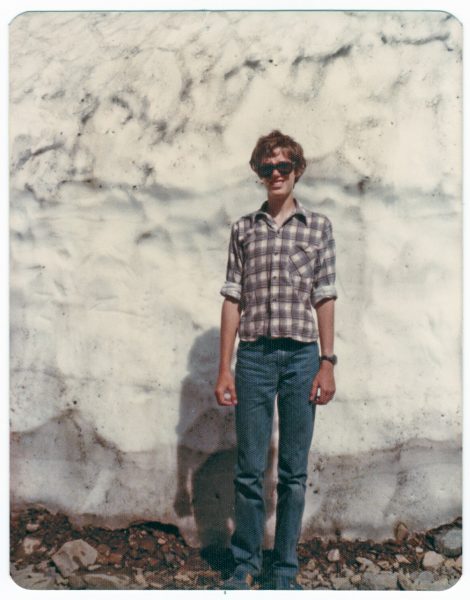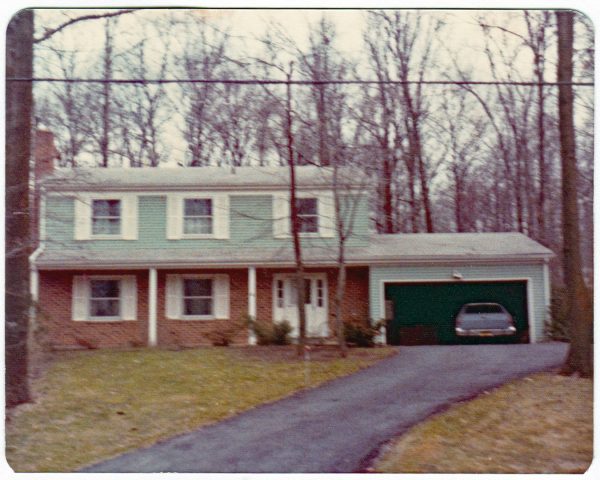I turned 16 years old on March 29, 1979. I lived in the hills just south of Hershey, about 5 miles downwind of Three Mile Island. As a sophomore at Hershey High School, I was old enough to understand the magnitude of the situation.
My mother had been a physics major in college and my father was the department chairman of pathology at the Hershey Medical Center. So I was lucky to have parents who could give me a solid understanding of the TMI accident. The fact I was interested in science also helped, and I would go on to have a long career in science journalism that continues to this day.
I vividly remember packing my essential belongings and then walking around our house and neighborhood to take photos, thinking it was possible I would never see my home again.
I remember being relatively unconcerned for the first day or two after hearing news of the accident. I assumed that the authorities would soon have the problem under control.
But I remember my parents hearing on the news that there was a possibility of a meltdown, an event that could render the area uninhabitable for decades. My father came home early from work one day and said we needed to evacuate the area. My mother agreed. I don’t exactly recall my initial reaction, but I vividly remember packing my essential belongings and then walking around our house and neighborhood to take photos, thinking it was possible I would never see my home again. I still have those photos today, and they remind me of the accident. Before leaving, I talked to some of the neighborhood children, kids I had known for many years. They basically thought our family was a bunch of sissies for evacuating. Despite this criticism, I did not argue with my parents over their decision to leave.
where I lived was, for a brief period, the center of the world’s attention

Bob during the summer of 1979
My parents drove out of the area by going north on Interstate 81. I remember that the southbound lanes were blocked by the National Guard, so all the traffic was northbound, out of the area. The northbound traffic was very heavy in spots, so it was obvious that large numbers of Harrisburg-area residents were also evacuating.
We drove to my uncle’s house in Marion, New York, near Rochester. He had a very large house with lots of extra space for me and my parents. I don’t remember exactly how long we stayed, but it was several days. We followed the news on TV very closely. I remember the surreal feeling that the area where I lived was, for a brief period, the center of the world’s attention and that it was interesting to hear familiar places like Middletown being mentioned in the news.
My father left a day or two before my mother and I, although I don’t remember exactly how he got home. When President Jimmy Carter visited TMI and declared it safe to return to my area, my mother felt it was time for us to go home. She understood that President Carter had been a nuclear engineer in the navy, so he was giving expert advice. My mother was a Democrat who voted for Carter, so she trusted his judgment.
Fake news certainly existed in 1979.
I don’t have any memories of the drive home or what it was like to return to the neighborhood and school. I probably felt relieved that I could return to our house and that my life could return to normal. I also remember my father telling me that the Med Center had radiation detectors, and that their readings showed that the Hershey area never received any dangerous amounts of radiation. This countered some of the wild misinformation I heard from various people. Fake news certainly existed in 1979.
Over the next few years I largely forgot about the accident, although I would sometimes joke to friends that if they ever saw me glow in the dark, it was because of radiation from TMI. In 1991, I was a graduate student in science journalism at Boston University. As a project for one of my courses, I obtained microfilm of The Patriot News’s coverage of the accident. I did a careful analysis and determined that the newspaper’s coverage was impressive and gave the Harrisburg metro area’s residents an accurate portrayal of the accident and the dangers to public health. The high-quality coverage really showed the benefits of having a well-staffed local newspaper, something that is certainly not the case today. If TMI has another accident in the future, I think our area will have to rely on national sources for accurate coverage.

Our family house at 50 Laurel Ridge Road, Hershey. I took this and a few other photos in case TMI turned south-central PA into a radioactive wasteland, meaning I could never return to my home area.
After graduating from Boston University in December 1991, I embarked on a 25-year career in science journalism. I worked as an editor for Discover, Astronomy, and Sky & Telescope magazine. I also worked at NASA’s Goddard Space Flight Center in Greenbelt, Maryland, and I served as editor in chief of Sky & Telescope from 2008 to 2014. S&T is widely regarded as the most accurate and respected popular astronomy magazine in the world. I moved back to Derry Township in August 2016 and now write for The Sun (a weekly newspaper published in Hummelstown) and The Burg. I also write for S&T and Astronomy on a freelance basis.
With my knowledge of science, I have become a strong supporter of nuclear energy despite my memories of the TMI accident. I realize that nuclear energy is a vital component of our nation’s energy portfolio and that it is an essential method to generate electricity 24/7 for tens of millions of people without pumping greenhouse gases into the atmosphere. I understand the problem of storing the long-term radioactive waste, but realize that the urgency of global climate change demands that we continue to use our nation’s nuclear fleet to generate carbon-free electricity. Solar and wind haven’t ramped up nearly enough to replace nuclear in the energy grid. I worry that TMI will shut down this fall, costing our area many hundreds of jobs and reducing the tax base for nearby communities and the Lower Dauphin School District. But I mostly worry that for every nuclear power plant that shuts down, we will need to pump more greenhouse gases into the atmosphere, forcing future generations to live on a fundamentally different climate. I contrast this danger with the fact that we have not had any major nuclear accidents in the United States since 1979. I hope that our legislators and governor can find a way to keep TMI open!
Robert
